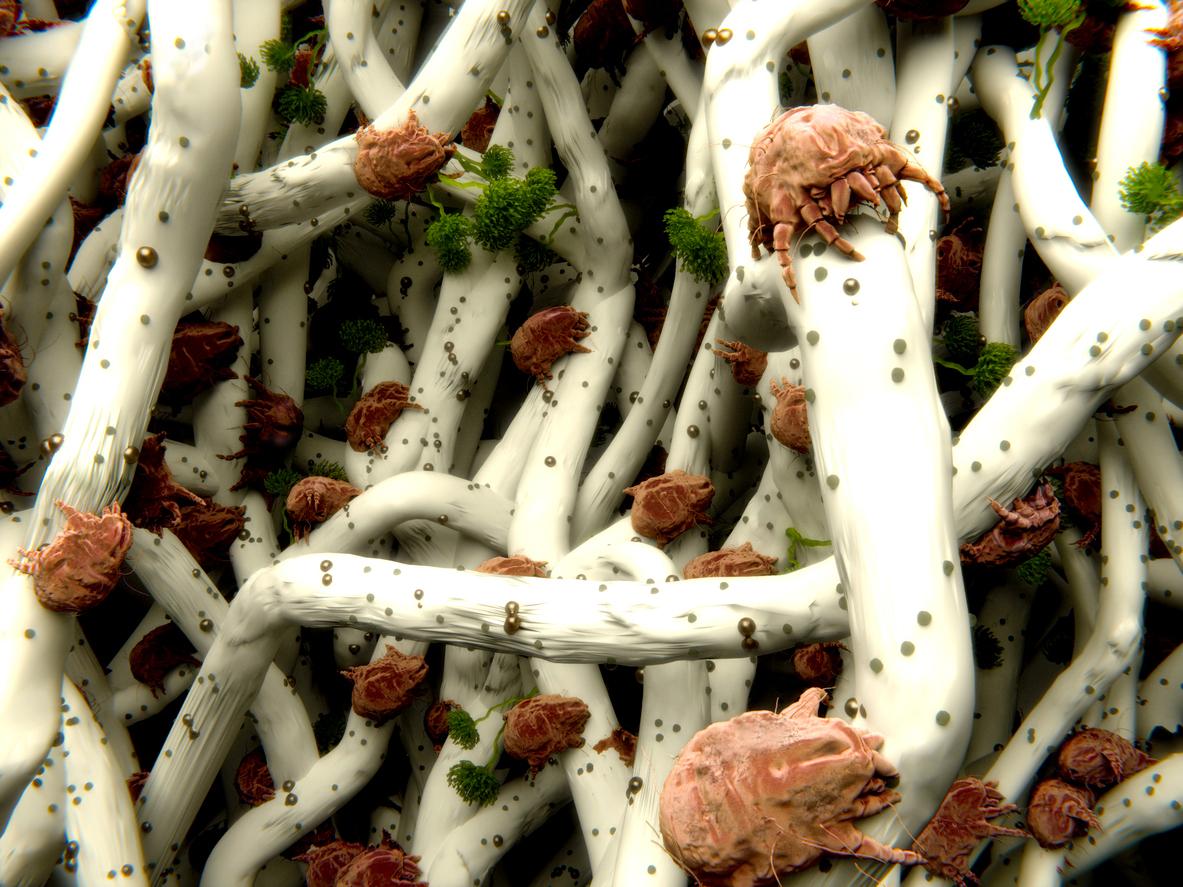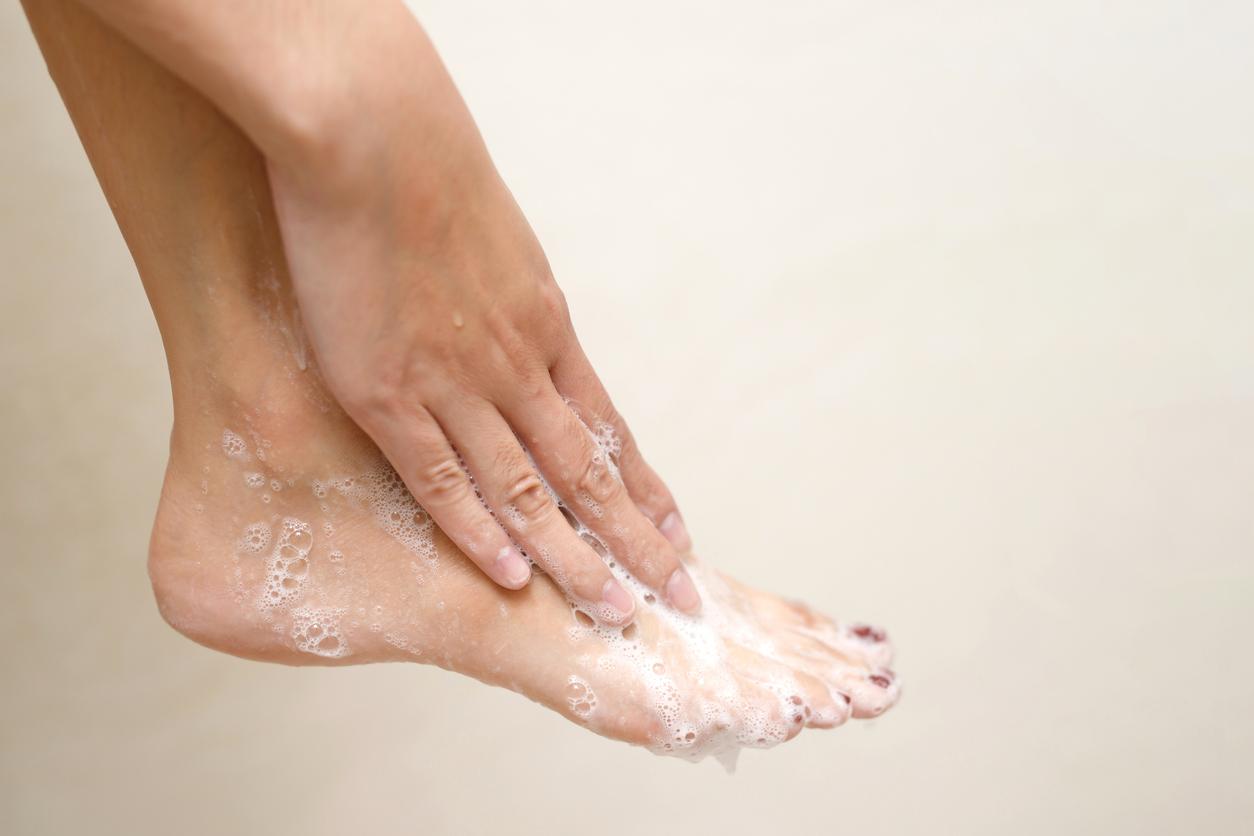In recent decades, our Western societies have experienced a significant increase in the number of people with allergies, asthma or even autoimmune diseases. If some specialists point the finger at air pollution, most scientists blame our environment “too clean.” »Dr Jean-François Bach, professor emeritus in immunology at Parsi Descartes University, kindly answered our questions on this subject.
Cleanliness and allergies: two observations in parallel
“There is one thing that nobody disputes is that there is indeed an increase in the frequency of allergic diseases (asthma, food allergy, eczema, etc.) and autoimmune for the past thirty years, ”explains Jean-François Bach, Doctor of Medicine, researcher in immunology and Perpetual Secretary of the Academy of Sciences. -immunes result from a dysfunction of the immune system which attacks the normal constituents of the body. This is for example the case of type 1 diabetes, multiple sclerosis or rheumatoid arthritis.
But if the increase in the frequency of allergies and autoimmune diseases is unanimous, the reasons given to explain it are still being studied and are being debated. “For some allergists, this could be explained by an increase in allergens in the environment or by pollution”, reports Jean-François Bach. But overall, it is the hygienist hypothesis that is most often advanced by the community scientific: Due to our sanitized and “too clean” environment, we do not stimulate our immune system enough, which leads to allergies or autoimmune diseases. According to Dr Jean-François Bach, who has written extensively on this subject, more than 1,000 scientific publications point in this direction at present.
“Hygiene leads to a decrease in the bacterial load that surrounds us,” explains the specialist. According to him, this cleanliness should be divided into two parts: “societal hygiene” (which involves cleaner tap water, vaccines, the use of antibiotics etc.) and individual cleanliness. On the first, the individual has few ways to act. On the other hand, on the second, he is directly involved.
The benefit of exposure to community infections
In general, if we do not have control over the “societal hygiene” that surrounds us, we each have personal hygiene habits, not always appropriate, which do not expose us sufficiently to infections beneficial for our system. immune. For Jean-François Bach for example, “compulsive mothers” who “put diapers containing antiseptics” on their babies act obsessively, wrongly. Likewise, “one should not be devastated if the child eats a slice of butter that has fallen to the ground for example. “
In addition, social life from a young age is beneficial for the immune system of the child, even if the child is often sick. crib, he will contract all the infections of the little comrades, whereas if you keep him at home, he will be less susceptible to these infections. And it has been perfectly shown that there are more allergic diseases in children than we have kept at home. The fact of putting the children in the nursery thus protects them a little from allergic diseases “, affirms the researcher. In addition,” a scientist, Dr Strachen, had the idea to look at the frequency of theasthma depending on the order of birth in families, ”says Dr. Bach. “He observed (and this has been confirmed) that the elder has more asthma than his younger siblings. “Indeed, according to the scientist, the youngest children of the siblings catch the infections reported by their big brothers and big sisters, while the latter were not as exposed to infections when they were young.
City, countryside and pets
A common misconception is that there are moreasthma in town than in the countryside. In truth, “there are several studies, including a very recent one, which have shown that the frequency of asthma is not higher in the city than in the countryside. It is therefore a major argument against the pollution hypothesis. A glaring example is that of East Germany in the 1980s, tells us Jean-François Bach. East Germany was then less developed than West Germany and had more pollution. In addition, people lived there in precarious conditions, with little hygiene. However, there was more asthma in West Germany than in the eastern part, contrary to what scientists thought. Likewise today, Western countries are much more affected by allergic and autoimmune diseases than less developed countries, where the population is more exposed to infections.
But if the city-countryside contrast is not visible, animal exposure has clearly been established as a factor reducing the risk ofallergies. “When a child in the countryside lives on a farm, where there are a lot of animals, he is much less likely to develop asthma than a child who does not live on a farm, even if he lives in the same zone ”, assures the academician. “And even if the mother was exposed to animals during pregnancy, it would already have an effect, even if the woman is going to live in the city after giving birth. “” And in town, when children live with a dog, there is a decrease in risk of asthma », Adds the researcher. For now, no scientific study has yet succeeded in explaining this phenomenon. The dominant hypothesis suggests that dogs have protective bacteria in their hair or saliva, which stimulate children’s immune systems.
Precautions to be taken against contagious diseases
Regarding children, Jean-François Bach suggests “going back to what we did 20 or 30 years ago. The parents at the time did not take unnecessary precautions, did not have exaggerated reactions to the hygiene of the little ones, ”emphasizes the academician.
However, the researcher assures us that we must not stop taking certain essential precautions for everyone’s health, such as vaccinating their child against contagious diseases (such as measles, rubella and mumps, for example). In the same sense, the hand washing when getting out of public transport and before sitting down to eat is not necessarily to question, especially in times of epidemic (flu, gastroenteritis, etc.). ” It is a matter of common sense. We must continue to take basic hygiene precautions, in a non-binding way. But the obsession with extreme cleanliness should be avoided ”concludes the researcher.


















